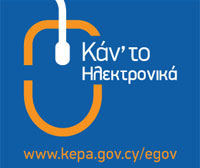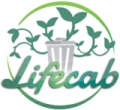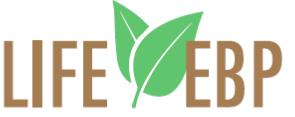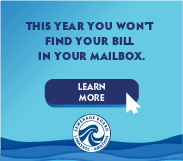Update your contact details now and receive your bill by email.
I don’t have a smartphone – I can’t scan the QR Code.
I have not received a letter/I have lost the letter that was sent to me.
Can I update another customer’s contact details from my phone?
Can I enter my mobile phone number and email address to receive my elderly parents’ bills?
I have completed the Contact Details Updating Form. Where should I send it?
What else will you use my email address and mobile phone number for?
I have previously given my email address to the SBLA/I already receive my bills by email. Do I still need to go through this updating process?
I have carried out the updating process by scanning the QR code/by entering my contact details on the SBLA website. Do I also need to send the printed form?
I have carried out the updating process by scanning the QR code/by entering my contact details on the SBLA website but I am not sure if it has been completed.
I have updated my contact details. How can I change or correct my email address or mobile phone number after completing the updating process?
What is the deadline for updating my contact details?
Until what time are the cash desks open?
What is the basis of imposition of charges?
On the basis of which legislation?
What is the drainage charge?
What is the sewerage charge?
What should I do to be connected with the system?
How many connections a plot is allowed?
Can I have a common house connection with my neighbour?
When should I pay my sewerage and drainage charges?
What happens if I am late in paying my bill?
Whom can I contact if there is a problem?
What should I do if I have not received my statement of account?
What should I do in case I change my address?
Items not to be disposed of in the system
I don’t have a smartphone – I can’t scan the QR Code.
Go to the SBLA website (www.sbla.com.cy) and enter your account number, as it appears in the top right-hand corner of the letter that you have received and follow the on-screen instructions.
(↑ top)
I have not received a letter/I have lost the letter that was sent to me.
Call the SBLA on 25881888 and you will be sent a new letter with your account number.
(↑ top)
Can I update another customer’s contact details from my phone?
Yes, but you must enter the mobile phone number and email address of the customer to whom the letter was sent.
(↑ top)
Can I enter my mobile phone number and email address to receive my elderly parents’ bills?
Yes, provided that they give their consent.
(↑ top)
I have completed the Contact Details Updating Form. Where should I send it?
- By post to P.O. Box 50622, 3608 Limassol
- By fax to 25881777
- By email to [email protected]
- By placing it in one of the special boxes in the SBLA Customer Service Dept. or in the Municipal offices of Limassol, Kato Polemidia, Yermasoyia, Ayios Athanasios and Mesa Geitonia.
(↑ top)
What else will you use my email address and mobile phone number for?
In addition to receiving your bills by email, you can also receive text messages (SMS) or emails about issues relating to the due dates of payment of SBLA bills, traffic diversion arrangements due to road works, connection decrees and other general information.
(↑ top)
I have previously given my email address to the SBLA/I already receive my bills by email. Do I still need to go through this updating process?
Yes. Even though we already have the information that you provided previously, it still needs to be confirmed/updated.
(↑ top)
I have carried out the updating process by scanning the QR code/by entering my contact details on the SBLA website. Do I also need to send the printed form?
No. If you have updated your information via the QR Code or the SBLA website, the process has been completed.
(↑ top)
I have carried out the updating process by scanning the QR code/by entering my contact details on the SBLA website but I am not sure if it has been completed.
Repeat the process of scanning the QR Code or entering your account number on the SBLA website and if you receive a message stating ‘updated’, this means that the process has been completed. If you continue to have any doubts, call the SBLA offices on 25881888 for confirmation.
(↑ top)
I have updated my contact details. How can I change or correct my email address or mobile phone number after completing the updating process?
Call the SBLA offices on 25881888 and a member of staff will correct contact details.
(↑ top)
What is the deadline for updating my contact details?
You need to update your contact details by the end of June 2023 in order to receive your bills by email.
(↑ top)
The Board's offices are located in the new building complex of the Limassol Municipality Offices, Franklin Roosevelt Avenue 76, Block A (next to the Water Board of Limassol.)
Until what time are the cash desks open?
Working hours:
Cashiers: 08.00 - 14.30
Submission for applications for connection: 08.00 π.μ. - 14.30 μ.μ.
A. Sewerage and drainage charges.
The last date for payment is determined every year by the Board. The date is announced in three local daily newspapers and also in the official Gazette of the Republic. Further more, the date is announced on local radio stations.
The last payment date of the charges for the year 2024 has been appointed as the 31st of October 2024.
B. Sewerage service charges
The sewerage service charges for the use of the system are paid together with the water consumption charges and appear on the Water Board's bill. (↑ top)
What is the basis of imposition of charges?
There are two categories of charges:
A. Sewerage and drainage charges
In accordance with the Sewerage Systems (amending) Law N.35(I)/2017, as published in the Official Gazette of the Republic on 7/4/2017, the imposition of the sewerage and drainage charges as from 1/1/2020, is based on the assessed general valuation of the immovable properties as at 1/1/2018, as determined by the Land & Survey Department. For any enquiries or complaints concerning the assessed value of your property, you can refer to the Land & Survey Department in Limassol.
B. Sewerage service charges
Sewerage service charges are based on the water consumption of your water bill. The charge is 0,64 euros per metric tone for all premises connected to the public sewerage system. This charge is levied and collected through the competent Water Board Authority of the area. (↑ top)
On the basis of which legislation?
Sewerage charges , are imposed in accordance with the Sewerage System Law, number 1/1971 and the By - Laws which were published in the Official Gazette of the Republic under the Reference “КΔΠ 99/91” as subsequently amended.
In accordance with the Sewerage Systems (amending) Law N.35(I)/2017, as published in the Official Gazette of the Republic on 7/4/2017, the imposition of the sewerage and drainage charges as from 2020, are based on the assessed general valuation of the immovable properties as at 1/1/2018.
These charges become payable following the publication of the relevant notification in the Official Gazette of the Republic and in three daily newspapers. At the same time the Board gives notification through all the local radio stations and the press requesting the public to settle their accounts. Those who haven't received their statement of account are requested to contact the Board's offices to clarify the matter as soon as possible. (↑ top)
The drainage charge is an annual charge imposed on the assessed value of the property for the construction of the infrastucture of the stormwater drainage system. The applicable rate for 2021 is 0,09 euro for every 1.000 euro of the assessed value of the property. (↑ top)
The sewerage charge is an annual charge imposed on immovable property and is based on the assessed value of property as at 1/1/2018 as determined by the Land and Survey Department.
For the applicable sewerage click here … (↑ top)
What should I do to be connected with the system?
You should submit the “CONSTRUCTION APPLICATION FORM” (only in greek). This application form should be accompanied by the documents that are specified in the application.The Technical Services of the Board will examine your application and you will then be notified in writing when your application is ready. Choose the contractor who will construct your private sewerage system. It is recommended to ask for quotations from at least three different contractors in order to get the best possible price. You should notify the Board on time, prior to commencement of the works, to arrange an appointment, in order to carry out the necessary inspection by an appropriate officer.
For the issue of permit and the connection the minimum fee is 70 euro.
Before connecting to the system, you should obtain from the Board the relevant written consent for the connection of your private sewerage system to the public system. This consent is known as the ‘green card'. Connection to the system without this written consent is illegal. (↑ top)
How many connections a plot is allowed?
For every plot irrespective of the number of joint-owners or buildings therein, only one free house connection is constructed by the Board. For every additional house connection required, the construction costs should be met by the owners. (↑ top)
Can I have a common house connection with my neighbour?
A. Through the property of my neighbour. Provided that a proper consent is granted in writing by your neighbour and a right of way is duly registered with the Land and Survey Department, you can have a common house connection. B. Joint – ownership of the same plot. Provided that the application for connection to the system is signed by all the co-owners (joint owners) of the property, permission for one connection can be granted. (↑ top)
When should I pay my sewerage and drainage charges?
A. Sewerage and drainage charges.
The last date for payment is determined every year by the Board. The date is announced in three local daily newspapers and also in the official Gazette of the Republic. Further more, the date is announced on local radio stations.
The last payment date of the sewerage charges for the year 2024 is the 31st of October 2024.
B. Sewerage service charges
The sewerage service charges for the use of the system are paid together with the water consumption charges and appear on the Water Board's bill. (↑ top)
What happens if I am late in paying my bill?
In accordance with article 30(3)(a) of the Sewerage Systems Laws of 1971 (No. 2) of 2017, a surcharge of 5% is imposed on the outstanding amount of the sewerage charges of the current year paid within 4 months from the due date and a surcharge of 15% on the outstanding amount paid after 4 months from the due date.
Further delay to settle your bill may result in legal measures. (↑ top)
Whom can I contact if there is a problem?
A. You can visit us at the Board's offices at the address referred to in question number 1 above.
B. You can also call to the Board's telephone numbers:
For queries, complaints and general enquiries regarding sewerage charges and the balance of your account, please telephone 25 - 881805, 25881803, 25881741 and 25881804. For matters concerning connection to the system 25 - 881743, 25881740 For matters concerning lawsuits 25 881809. For urgent matters outside working hours including obstruction of pipes, damages, leaks or any other serious problems 77772015. (↑ top)
What should I do if I have not received my statement account?
You should contact the telephone number 25881803 or 25881804 or 25881805 and give the details of the property for which you have not received the statement or fill in the application ... (↑ top)
What should I do in case I change my address?
You should contact the administration department on 25881803 or 25881804 or 25881805 and you should give details of your new address or you should send a letter to the Board informing it of the change of address. Alternatively, please complete the section on the reverse of the statement of sewerage charges that has been sent to you. (↑ top)
Items not to be disposed of in the system
- Cooking oil or other edible oils and grease
- Food leftovers (blended* or no), cooking oil or other edible oils, solid pastry leftovers (chocolate, creams, syrups, etc.)
- Condoms, sanitary towels, baby diapers, ear cotton pads, dental floss, cotton, wetties, cleansing wipes,
- Any solids like glasses, plastics, metals, wood, sand, soil, gravel, clothing, fabrics, rags and cigarette butts
- Detergents, cleaning products based and chemicals which are not biodegradable or environmentally friendly or chemicals which are chlorine or ammonia based or contain phosphates.
- Condensates from air conditioning
- Bandages, syringes, blood, drugs, toxic, radioactive, contaminating or dangerous substances from medical, laboratory and other processes
- Toxic and dangerous substances, heavy metals (like antibiotics, medicine, mercury etc.)
- Mineral oils, lubricants, wax and any greasy substances
- Colouring substances (paints, dyes), solvents
- Pesticides and toxic waste
- Gasoline, petrol or other flammable substances, explosive mixtures
- Corrosive industrial chemical waste
- Ground-water or rainwater
- Liquid or gas form with temperature higher than 65οC
- Sludge or sewage from biological treatment units
- Septic sewage (i.e. from waterproof tanks-septic tanks)
* The use of waste blending machine is prohibided in the kitchen
(↑ top)






